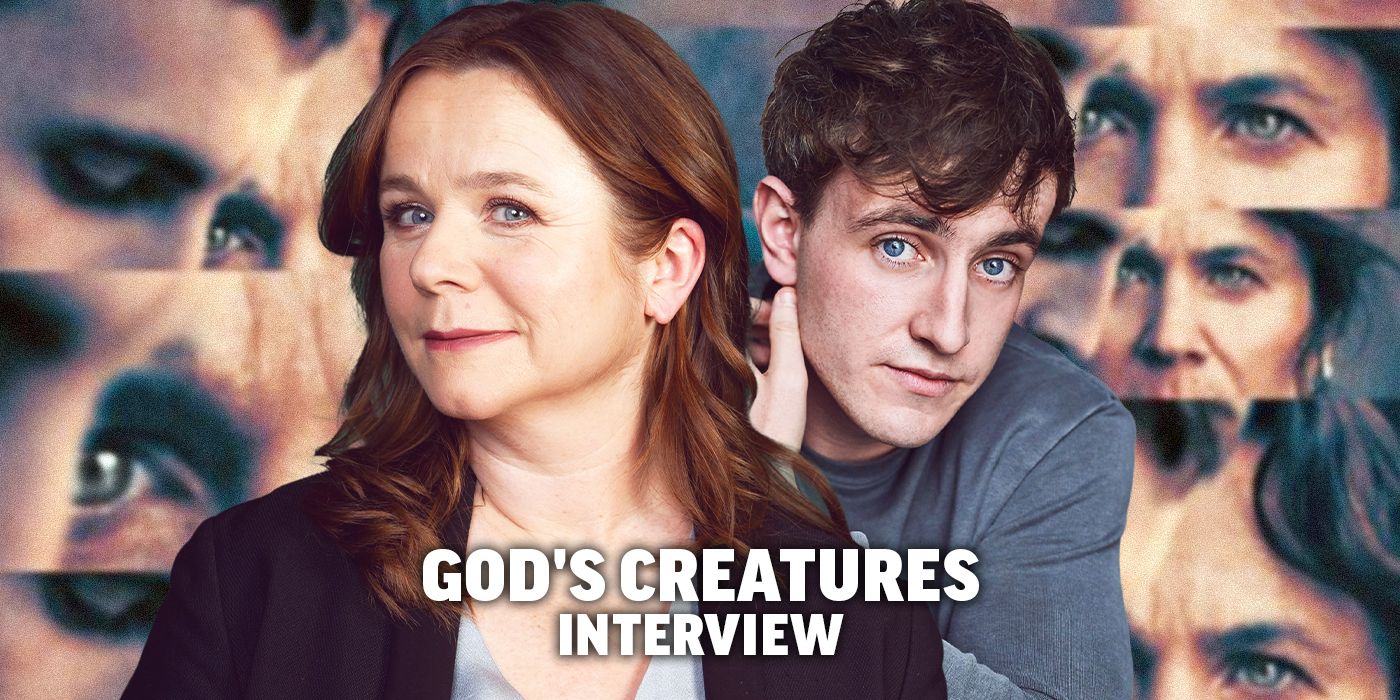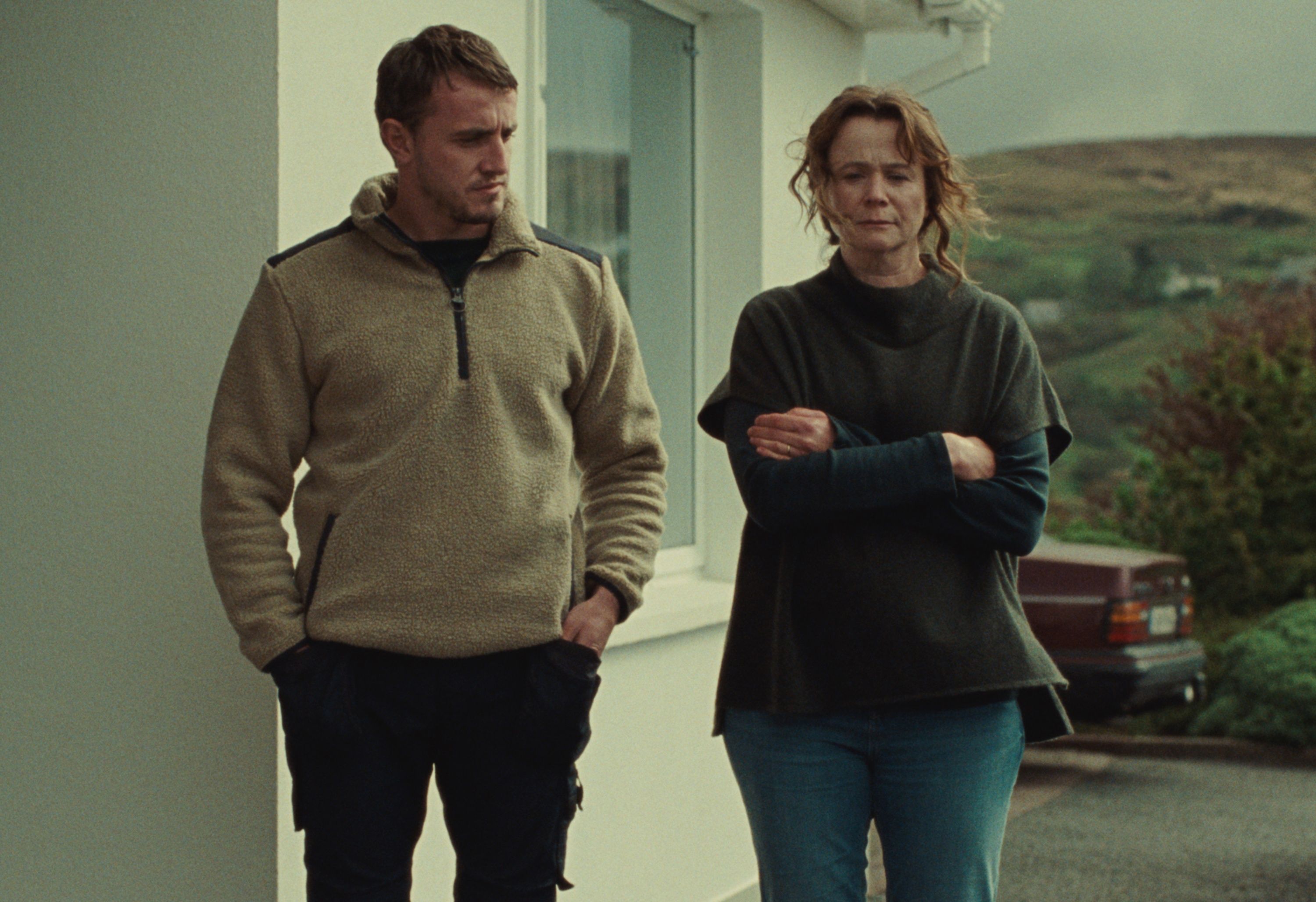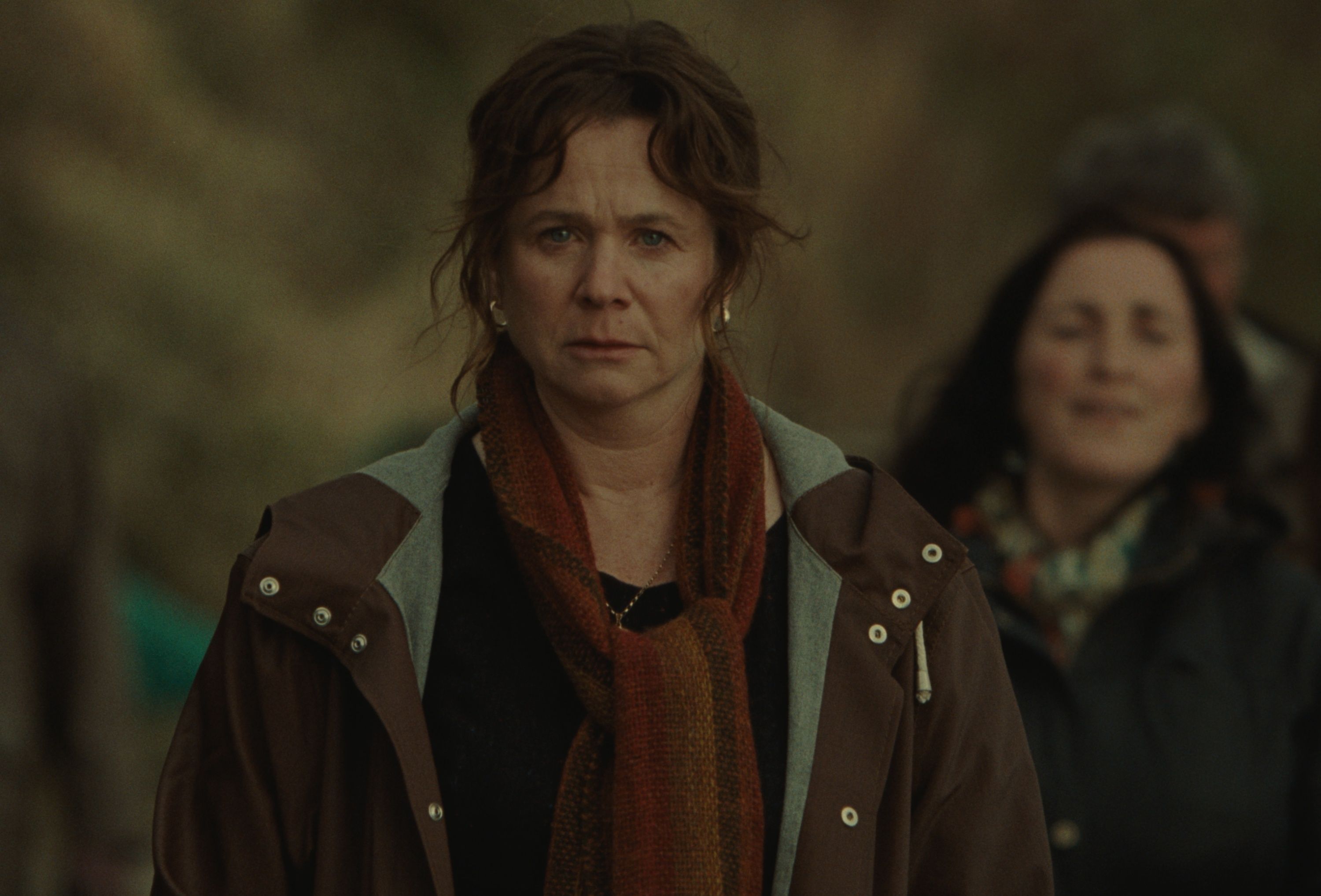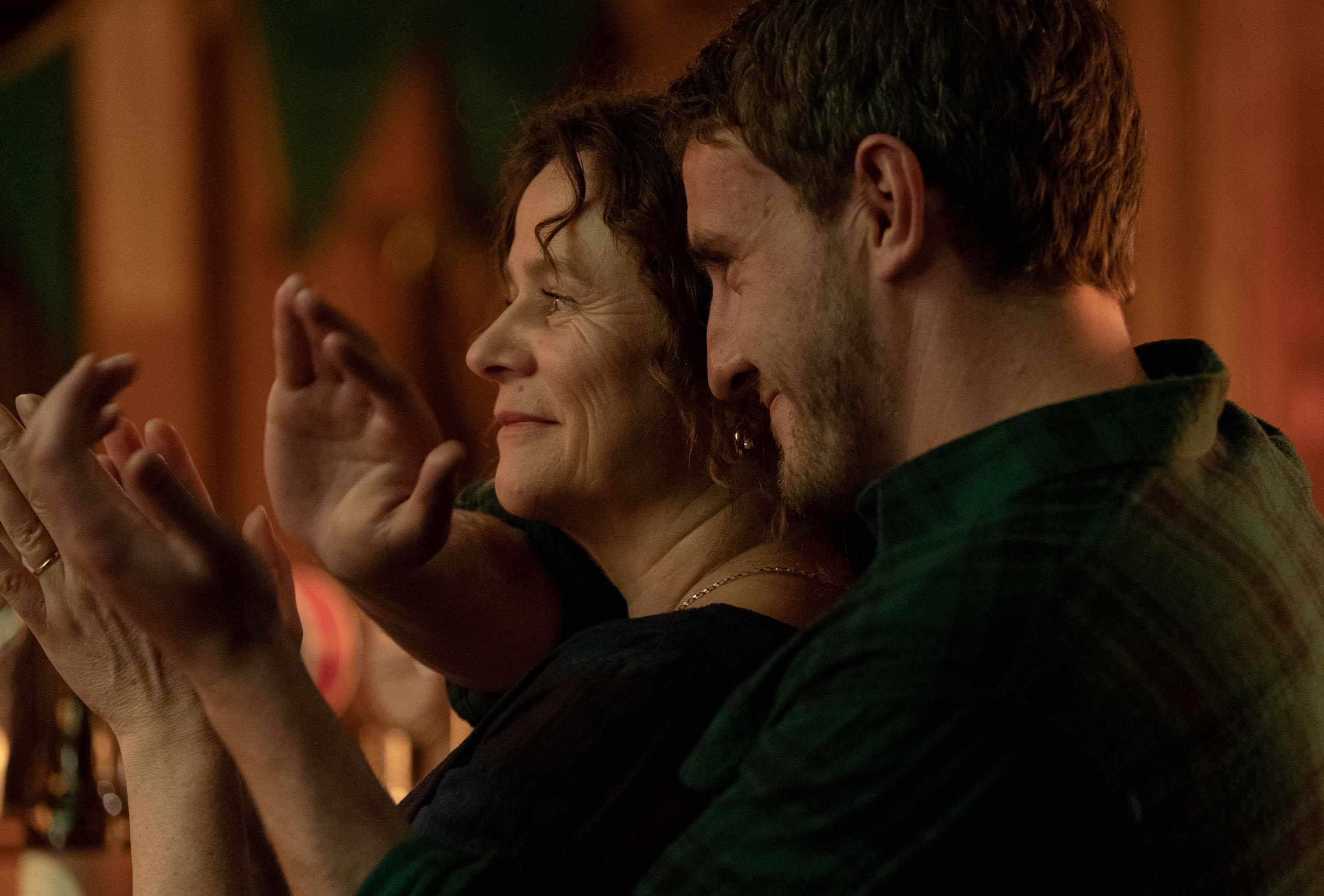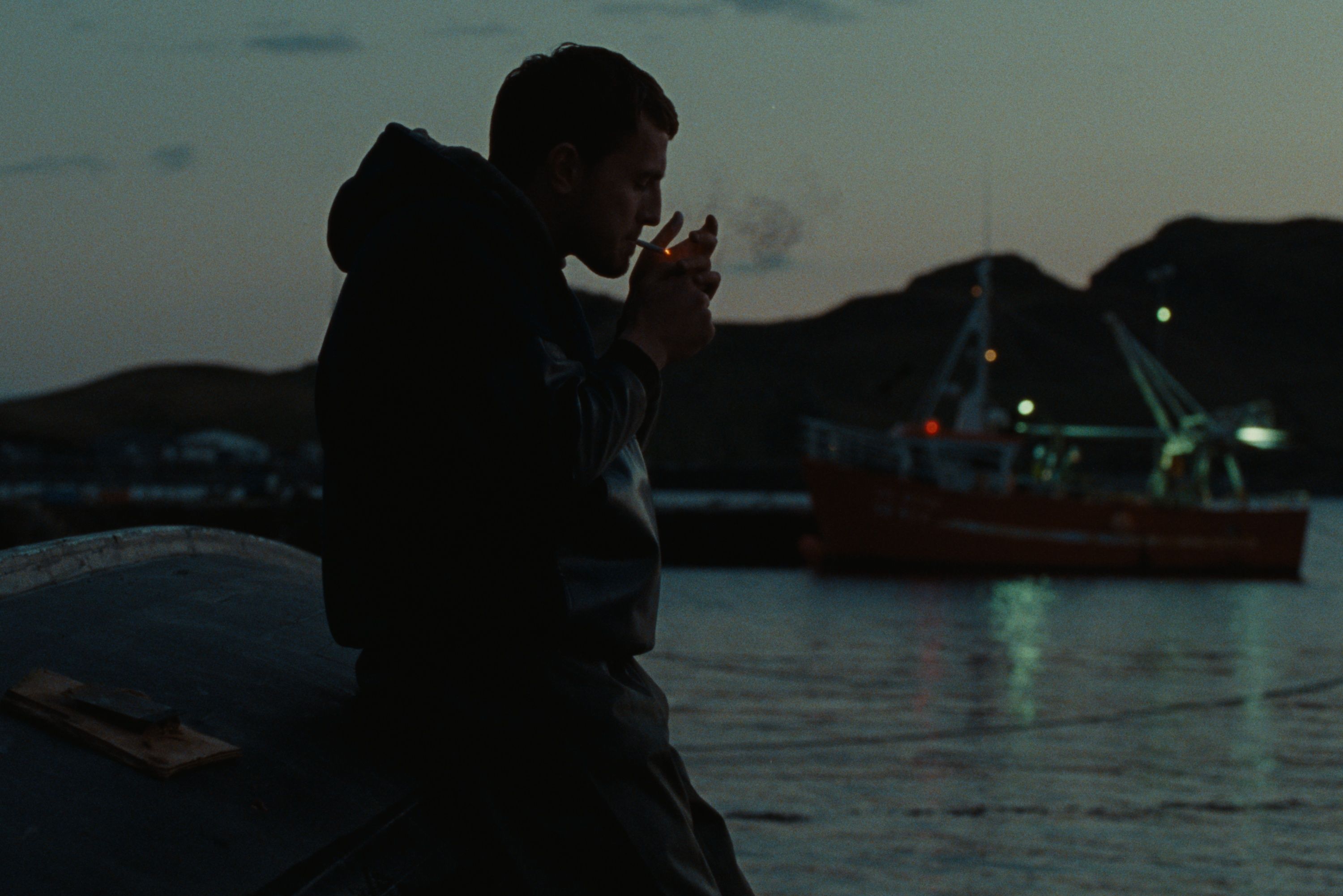From directors Saela Davis & Ann Rose Holmer and screenwriter Shane Crowley, the haunting drama God’s Creatures follows a mother (Emily Watson) whose son (Paul Mescal) returns to the small Irish fishing village they’d always lived in and steps in to help with his family’s oyster farm. After seven years abroad, Aileen is grateful to have her son home, until Brian is accused of a terrible crime and the lie that she tells to protect him makes her question everything.
During this interview with Collider, co-stars Watson and Mescal talked about what a great script this was, wanting to be a part of a certain standard of work, learning what it entails to be an oyster farmer, the mother-son dynamic at the core of this story, why this mother makes the decision she does to protect her son, getting to dance together, and what they enjoyed about working with each other.
Collider: This is a deceptively complex and layered story. At first, it feels like a quiet story about a small village where not much probably ever happens, but then, you realize there’s all of this complexity and layers to the characters and this constant underlying dread going on. When you first read this, what most struck you about the story? What was it that stayed with you and made you want to be a part of telling it?
EMILY WATSON: It felt incredibly authentic and specific to a place, in a way that made me feel it was very alien to me. It wasn’t something where I went, “Oh, yeah, I know this. I know how to be in this place.” But at the same time, it felt like it had a sense of a Greek tragedy, but also a very, very real issue, around sexual assault and how a single act of sexual assault reverberates through many people.
PAUL MESCAL: Yeah, the boring answer is how the standard of the script was so good. That’s hard to come by frequently, for the most part. And I thought that playing a character like Brian would be, to put it mildly, a challenge, and one that I was excited at the prospect of.
Paul, after the success of Normal People and the attention that you got with that series, I would imagine that more projects became available to you and possible for you than prior to that. Have you always had a clear sense of the type of projects and the work you want to do, or did the success and having more options affect the choices you wanted to make?
MESCAL: I think I had a clear idea, in terms of the standard of work that I wanted to do, but I wouldn’t be able to narrow that down to what that film would look like. It’s not a list of film or genre of film where I’m like, “I’m gonna do two action films and play these three characters.” It’s more to do with being excited by the filmmakers that I would potentially get to work with, post-Normal People, and sticking true to those values. That can be ever-shifting. Who knows what film I’ll want to do in three or four years time. I’m just thinking one thing in advance.
Does a project like that though help give you more confidence in your own abilities, as an actor? Did you feel more secure in knowing what you could actually deliver with a given role?
MESCAL: Post-Normal People, probably yeah. I didn’t have that confidence before because I didn’t know whether it was gonna work out. You gain confidence from each thing that you do, especially in the early days. Because Normal People was so specific, and was current and close to me, to a certain extent, I was keen that the next thing would be far removed. That then put me in an interesting relationship to any audience that wants to see what I do because I don’t want it to be obvious, what I’m gonna do next. I think that opens up a distance, which is interesting to me.
Emily, you are always so terrific in the work that you do. When it comes to projects for you, is it an instinct when you read a script? Do you immediately know whether it’s something you want to be involved with?
WATSON: Yes. I think you have to have a sense of, “I could occupy this space. I would be creatively challenged by it. I feel that there’s something to get into there.” But also, you have to feel like everybody has a sense of their integrity. Maybe, in a way, that’s what Paul was trying to articulate, that he has a sense of his creative integrity. And then, it doesn’t matter what it is, but it has to feel that it’s got that. That’s one of the great things about being an actor. However successful you are, it’s a gypsy existence. I’m in my mid-fifties, and I’m still living out of a suitcase, and I don’t really ever know what’s gonna happen next, which is delightful and really annoying sometimes. You can’t go, “I wanna do this, and I wanna do that. And I want regularity.” Something has to smell right. If you’re lucky and you’ve had the kind of start that Paul has, and a long time ago, that I had, you can expect a certain standard of work.
MESCAL: And material.
WATSON: Yeah.
There’s such a clear sense of the town this story is set in, right from the beginning. We’ve seen plenty of stories about small villages, even small fishing villages, but I’ve never seen an oyster farming community depicted. How much did you learn about that? What was that like to experience?
MESCAL: Fodhla [Cronin O’Reilly], our producer, her brother is an oyster farmer. In the summer of 2020, when everything stopped, I was signed on to do the film and I was keen to use that time to figure out what it was to be an oyster farmer and what that felt like because sometimes that can be useful in preparation and performance. In this context, it was really useful because it’s a physical world in which these characters inhabit. Oyster farming is hard work. It’s brutal because you don’t decide when you finish your working day. The tide dictates that. That was a learning experience for me.
WATSON: And you are also potentially in great jeopardy, a lot of the time.
MESCAL: Every day. I always find preparation difficult because I don’t really fully know how to do it. I feel like a lot of it is just imagining or considering, operating in a heady, considered space, whereas having anything that is physical or that you could just jump into and really commit to, is always a blessing.
Emily, how much did you have to learn about it?
WATSON: Obviously, there’s very much a sense of a hierarchy. The men go to sea, and then the women process the fish and the oysters, and package them up. It can create wealth. It’s potentially a gold mine. But I had to learn. I can gut a salmon, which is smelly. But all the SAs (supporting artists) in the movie were a selective group of people. Because of COVID, we were surrounded by the same people, all the time. They were all workers in fish factories, so it felt very authentic. They taught us what to do, and they were all around us, all the time. A lot of the background work is really real.
This is the story of a mother and a son. Because the mother is really the one that is placed at the center of this, it makes the son a bit more mysterious and a bit elusive. Paul, considering that your character does feel a bit less knowable, did that influence the way you approached him? Did you fill in those gaps for yourself, or did you want to keep him elusive, even to you?
MESCAL: I didn’t want him to feel elusive, in a manipulative sense to an audience. I wanted him to feel elusive or unknowable because that’s a self-protective thing. It’s also that to be available to people requires this literacy around communicating one’s feelings, and I don’t think Brian has learned those skills at home with his mother or father. So, yes and no. It wasn’t about a consciousness of being like, “Oh, I’m gonna keep this air of mystery around him.” That’s just implied because of the way that he has learned to express himself. So, I’m glad that it looks like that, but that was a conscious choice or something that I was trying to manipulate.
Emily, this woman, this mother, makes a decision to protect her son by lying for her son. Do you think she knows what a bad decision that is when she makes it, or do you think she is actually convinced of his innocence, in that moment?
WATSON: I don’t think she’s ever convinced of his innocence, but I don’t think she’s capable. It’s not really a decision. It’s an animal instinct. I think her whole life has become totally focused on him and his welfare and enabling his return into their family. To her, it’s been a gift from God. It’s a prayer answered. There is no way that is gonna be changed or disturbed. For her, it’s not a choice. It just, “This is my life, and I can’t destroy that.”
Before things really start to go downhill, you guys share a moment where the two of you are joyously dancing around the room together. What was that like to shoot? It was so much fun to watch, but how was the experience of getting to know each other, as dance partners as well as scene partners?
MESCAL: Yeah, it was great.
WATSON: It was really proper fun. We had the most amazing band.
MESCAL: Yeah, playing live.
WATSON: It was a beautiful band. We rehearsed a bit. Obviously, it was all very new to me. It looks fun because it was fun. It really was fun.
MESCAL: I remember (directors) Anna [Rose Holmer] and Saela [Davis] saying that they just wanted to keep shooting. It’s one of those moments that is a tonic because of what surrounds it in the rest of the film. I think that was true for not just us, but everybody who was making the film. It was joyous and fun. You also see the potential in that relationship that exists between them. That was important.
WATSON: There is potential between them for something much better than what there ends up being.
Paul, what was it like to do that moment where Brian is singing with Paddy?
MESCAL: That scene never felt, to me, like it was about singing. It was about the joy that he gets from seeing his grandfather communicate in some capacity. Paddy is a really interesting character, in how important he is to the structure of the family. He is somebody who Brian idolizes, when Brian also despises his father. He’s seeking a masculine role model. In that moment, he’s bringing Paddy along in song, but it could have been anything. It could have been a poem.
WATSON: He comes back to us, in that moment.
MESCAL: He comes back to us for a second.
What did you guys most enjoy about working with each other? Actors talk about how they learn something with every project, so what did you learn from each other, going through this together?
WATSON: We had to get close quickly. We had to find the joy, and that was easy. We had a dialogue about the process that was really interesting. There were lots of things that I needed to have translated. Just culturally, I felt like I was a little bit at sea sometimes. But we just looked out for each other.
MESCAL: Yeah. The early stages of Aileen and Brian’s relationship, that we see in the film, mirrored a lot of the things that we were experiencing with each other, for the first time, in the sense that it was really joyful and inspiring to work with somebody who you admire greatly, and have from a distance, and who now is five feet away from your face.
WATSON: But it was fun, as well. We had a lot of fun.
MESCAL: Yeah, it was fun. The film looks and is very serious in its feel, and it was serious, but Emily is a great example that you can still hold these themes lightly. It has to be fun because ultimately it is about play.
WATSON: You have to maintain a sense of play. Otherwise, you get stuck in a mood.
God’s Creatures is in theaters and available on-demand.

